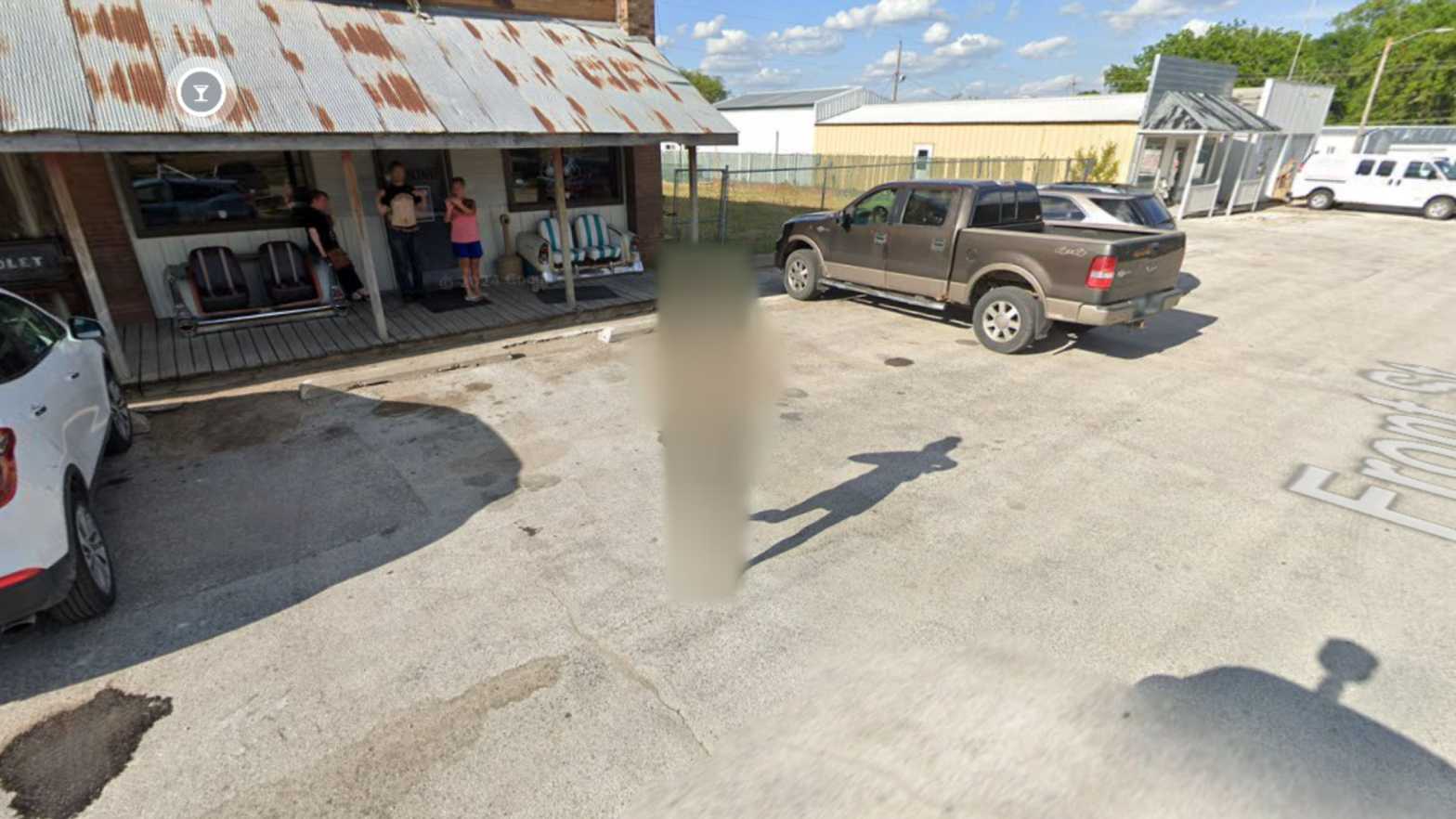A seemingly innocuous address in the small town of Barnum, Iowa has become an unexpected viral sensation, sparking curiosity, humor, and a fair share of speculation among internet users worldwide. The now-famous location, 324 Front St, has raised questions and captivated audiences with its unexpected connection to a Google Maps controversy.
It all began when a Google Street View image, captured outside a local bar at the aforementioned address, started circulating on social media platforms. In the image, a woman stands outside the establishment, appearing to flash her chest at the Google Maps car as it drove by. The unexpected and humorous nature of the photo quickly captured the attention of users across platforms, with many sharing and reposting the image, often accompanied by witty captions and lighthearted jokes.
The viral image has since sparked a series of memes, with “324 Front St, Barnum, Iowa 50518” becoming a trending topic and a meme in itself. Social media users have creatively engaged with the location, crafting fake reviews, sharing fictional stories, and even creating satirical promotions for the address. The lighthearted nature of the online discourse has brought a sense of community and shared humor to a global audience.
However, amidst the laughter and creativity, some have raised important questions about privacy and the potential consequences of such viral incidents. The discussion revolves around the ethical implications of Google Street View, a feature that provides panoramic views of streets and public places, inadvertently capturing and publishing sensitive or compromising situations.
In this particular case, concerns have been expressed about the well-being and privacy of the woman involved. While some have speculated about the context of the image and the woman’s intentions, others have emphasized the potential impact on her personal life and the possibility of unintended consequences. The incident has sparked a broader conversation about the boundaries of public exposure and the responsibility of tech giants like Google in handling such sensitive content.
In response to the viral image, a Google spokesperson provided a statement emphasizing the company’s commitment to privacy and the steps they take to blur faces and license plates in Street View images. They also highlighted the option for users to request further blurring or removal of images that feature themselves, their property, or sensitive content.
The statement reads, “We take the privacy and security of the people that use our products extremely seriously. In addition to blurring faces and license plates, we also provide easy-to-use tools for users to request further blurring or removal of images featuring themselves, their property, or sensitive content. We encourage anyone who identifies such content to let us know through the reporting options available.”
As the meme continues to spread and evolve, the story of 324 Front St, Barnum, Iowa has become a fascinating example of the unexpected ways locations can gain viral fame and the complex interplay between technology, privacy, and online humor. It remains to be seen whether the mystery of the woman’s intentions will ever be fully solved, but the address has undoubtedly secured its place in the annals of internet lore.
For now, the world continues to watch with amusement and curiosity, as the small town of Barnum, Iowa unexpectedly finds itself in the global spotlight.












